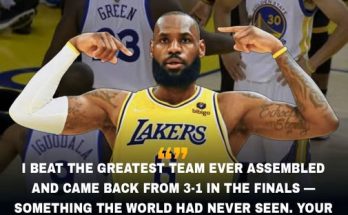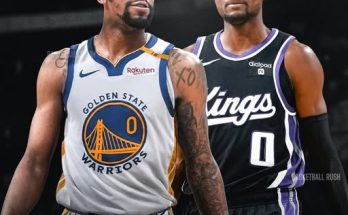In a surprising turn of events, Auburn Tigers men’s basketball coach Bruce Pearl has publicly called for former President Donald J. Trump to be awarded the Nobel Peace Prize, citing his role in facilitating a ceasefire between Iran and Israel. Pearl, known for his passionate leadership on the court, has now stepped into the political arena with a bold statement that has sparked debate across the nation. His comments come at a time when tensions in the Middle East have reached a critical point, and any efforts toward de-escalation are being scrutinized for their long-term impact.
Pearl, a well-respected figure in college basketball, made his remarks during a recent interview, where he praised Trump’s foreign policy strategies and his ability to broker deals in highly volatile regions. “President Trump has consistently demonstrated a unique ability to bring opposing sides to the table,” Pearl said. “The recent ceasefire between Iran and Israel is just another example of his diplomatic prowess. If anyone deserves the Nobel Peace Prize for bringing stability to the Middle East, it’s him.”
The suggestion that Trump should receive the prestigious award is not new, but it has gained renewed attention following the latest developments in the Middle East. During his presidency, Trump was nominated for the Nobel Peace Prize multiple times, primarily for his role in normalizing relations between Israel and several Arab nations through the Abraham Accords. However, his critics argue that his aggressive rhetoric and unconventional approach to diplomacy often exacerbated tensions rather than resolving them.
Pearl’s endorsement of Trump has drawn mixed reactions. Supporters of the former president have applauded the coach for recognizing Trump’s contributions to global peace, while detractors question whether the ceasefire would have been possible without the groundwork laid by previous administrations and international organizations. Some have also pointed out that the situation in the Middle East remains fragile, and attributing the ceasefire solely to Trump’s influence may be premature.
The Auburn coach’s comments have also raised questions about the role of sports figures in political discourse. While athletes and coaches have increasingly used their platforms to speak out on social and political issues, Pearl’s direct advocacy for a polarizing political figure is notable. Known for his fiery sideline demeanor and ability to rally his team, Pearl has never shied away from controversy. His outspoken nature has endeared him to many Auburn fans, but his latest remarks may test the limits of how far his influence extends beyond basketball.
Trump’s foreign policy legacy remains a contentious topic. Supporters highlight his willingness to challenge traditional diplomatic norms, including his direct negotiations with North Korea’s Kim Jong-un and his brokering of the Abraham Accords. Critics, however, argue that his “America First” approach often alienated allies and undermined multilateral institutions that have historically played a key role in conflict resolution. The recent ceasefire between Iran and Israel presents a complex case—while Trump’s policies may have contributed to shifting dynamics in the region, the exact nature of his influence remains a subject of debate.
Pearl’s call for Trump to receive the Nobel Peace Prize also brings attention to the criteria for the award itself. Historically, the Nobel Committee has recognized individuals and organizations that have made significant contributions to peace, often through sustained efforts rather than singular events. Past recipients include figures like Martin Luther King Jr., Nelson Mandela, and Malala Yousafzai, whose lifelong commitments to justice and reconciliation set them apart. Whether Trump’s actions meet this standard is a matter of perspective, but Pearl’s argument hinges on the immediate impact of the ceasefire rather than long-term peacebuilding.
The Auburn coach’s statement has also ignited discussions about the intersection of sports and politics. In recent years, the lines between athletics and activism have blurred, with prominent figures like LeBron James and Megan Rapinoe using their platforms to advocate for social change. Pearl’s vocal support for Trump suggests that conservative voices in sports are also becoming more assertive, reflecting the broader political divide in the country. While some fans appreciate when coaches and athletes speak their minds, others prefer sports to remain an escape from partisan debates.
As the story develops, it remains to be seen whether Pearl’s comments will influence public opinion or the Nobel Committee’s deliberations. The ceasefire between Iran and Israel is still in its early stages, and its sustainability will ultimately determine the legacy of those involved in its facilitation. For now, Pearl’s bold proclamation has succeeded in reigniting conversations about Trump’s diplomatic achievements and the role of high-profile sports figures in shaping political narratives.
Regardless of where one stands on the issue, Pearl’s willingness to speak out underscores the growing trend of athletes and coaches engaging in political discourse. Whether his call for Trump to receive the Nobel Peace Prize gains traction or fades as a momentary headline, it serves as a reminder of the powerful platform that sports figures hold in today’s society. As the Auburn Tigers prepare for their next season, Pearl may find himself fielding as many questions about politics as he does about basketball—a testament to the evolving role of coaches in the public sphere.
In the end, the debate over Trump’s eligibility for the Nobel Peace Prize is unlikely to be settled anytime soon. What is clear, however, is that figures like Bruce Pearl will continue to use their voices to weigh in on matters far beyond the basketball court, ensuring that the intersection of sports and politics remains as dynamic and contentious as ever.



